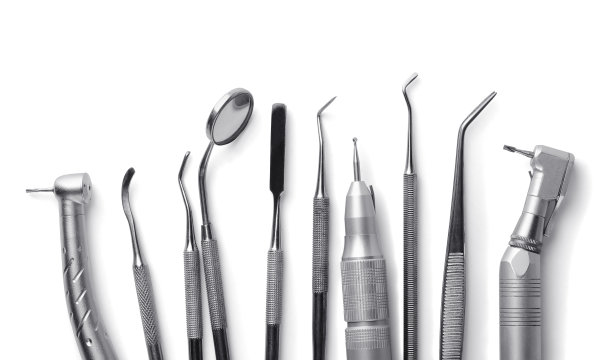Summary: Dental fillings are common procedures aimed at restoring the functionality and health of damaged teeth. Preparing for the procedure and ensuring proper aftercare is crucial for optimal recovery. This article outlines essential precautions that patients should take both before and after undergoing a dental filling. By following these guidelines, patients can minimize discomfort, reduce the risk of complications, and promote faster healing. Key areas covered include dietary adjustments, medication management, and oral hygiene practices, all of which play a vital role in achieving the best outcomes from dental fillings.
1. Dietary Adjustments Before the Procedure

Before undergoing a dental filling, it is essential to make certain dietary adjustments to prepare your body for the treatment. Consulting with your dentist about what foods to avoid is a vital step. Typically, you should steer clear of hard and crunchy foods, as they can exacerbate tooth sensitivity. Soft foods are a better choice to ensure you’re not putting undue pressure on your affected teeth.
Moreover, it is advisable to avoid sugary and acidic foods before your filling appointment. Sugar can promote bacteria growth, which may lead to further decay even before the filling procedure takes place. Acidic foods can increase discomfort and sensitivity, potentially complicating your treatment.
Finally, consider fasting for a few hours before your procedure, especially if you are going to receive sedation. This ensures that your stomach is empty, minimizing nausea during and after the filling procedure which can help in a smoother recovery.
2. Medication Management Pre-Filling
Medication management plays a significant role in ensuring a successful dental filling. Before your appointment, you should disclose any medications you are currently taking, including over-the-counter drugs and supplements. Certain medications, particularly blood thinners, can affect your dental treatment and lead to prolonged bleeding.
If you have been prescribed antibiotics due to other health conditions, discuss this with your dentist. In some cases, they might recommend taking antibiotics before your procedure to prevent infections, especially if you have a history of heart conditions.
Additionally, following your dentist’s instructions regarding the intake of any prescribed pain relievers before and after the procedure is crucial. Proper management of pain can significantly improve your overall experience and recovery time.
3. Oral Hygiene Practices and Their Importance
Maintaining excellent oral hygiene practices before and after receiving dental fillings is vital for optimal recovery. Before your appointment, ensure that your teeth are clean and free from plaque. This not only helps the dentist in providing effective treatment but also reduces the risk of infection.
Additionally, after the procedure, you should adhere to a strict oral hygiene routine. While you may be tempted to be less rigorous post-treatment, brushing and flossing regularly helps keep your mouth free of bacteria and food particles that could complicate healing.
Make sure to use a soft-bristled toothbrush and non-abrasive toothpaste in the days following your filling. This gentler approach will help prevent irritation to the sensitive area surrounding the filling, thus promoting a faster recovery.
4. Aftercare Recommendations for a Smooth Recovery
After receiving your dental filling, following specific aftercare recommendations is fundamental to achieving a smooth recovery. Initially, you may experience mild discomfort or sensitivity in the treated area. Over-the-counter pain relief medication can help manage this discomfort, but you should always seek your dentists advice on what to take.
It is essential to avoid eating hard foods or chewing gum for at least 24 hours following your procedure. Doing so will help protect the newly filled tooth from unnecessary pressure, ensuring integrity while the filling settles.
Lastly, staying hydrated and using warm saltwater rinses in the days following the procedure can aid in soothing the treated area, promoting healing and reducing potential swelling. Remember to contact your dentist if you experience any prolonged discomfort or adverse reactions after your filling.
Summary:
Preparing adequately for a dental filling procedure and adopting proper aftercare methods can significantly enhance your recovery experience. By making essential dietary adjustments, managing medications carefully, maintaining excellent oral hygiene practices, and adhering to aftercare recommendations, patients can minimize discomfort and the risk of complications.
This proactive approach not only makes the filling procedure go smoothly but also leads to better long-term dental health. Remember, taking these precautions will ensure a successful outcome for your dental filling procedure!
This article is compiled by Vickong Dental and the content is for reference only.
Vickong Dental
Vickong Dental is a large medical group established in Hong Kong in 2008 by professors from well-known medical universities in Guangdong and Hong Kong, as well as medical doctors from key national '985' universities (including Master's supervisors and senior professors). The chain of branches brings together expert dentists with PhDs and Master's degrees from Hong Kong and Mainland China, committed to providing high-quality dental treatment.
"Vickong Dental Practices the University Motto of 'Healing and Serving Society,' with a Stable Operation for Sixteen Years. It Has Been honored with Hong Kong Enterprise Leaders's Choice,' and is a Global Trusted Implant Center for the Nobel Implant System. Recommended by Hong Kong Metro Broadcast and Guangdong Television, it Serves Customers from Over Thirty Countries and Regions, Gaining the Trust and Favor of Citizens from the Guangdong-Hong Kong-Macau Greater Bay Area and Surrounding Cities.

Thousands of customers' unanimous praise
The most recognized and highly recommended dental service by customers in the Guangdong-Hong Kong-Macau Greater Bay Area
We Ensure You Receive Detailed Care and Attention Here
Hong Kong standards, Shenzhen prices, Your Trusted English-speaking dentists

Vickong Dental Medical-Grade Instrument Disinfection Process
Vickong Dental Medical-Grade Instrument Disinfection Process

Vickong Dental Chain: A Warm and Comfortable Environment for Treatment






Appointment Hours

Q&A
Why choose Vickong Dental?
Vickong Dental practices the university motto 「Medicine to Benefit Society」, with each branch bringing together highly qualified dentists with doctoral and master’s degrees from Hong Kong and the Mainland, and has maintained seventeen years of steady operation。Recipient of 「2024 Hong Kong Enterprise Leaders Brand」, 「2025 Hong Kong Enterprise Leaders Brand」, a Nobel Biocare Global Trusted Implant Center, and a brand recommended by Metro Radio Hong Kong and Guangdong TV。
To date, we have served customers from more than thirty countries and regions,earning exceptionally high word-of-mouth recognition and trusted recommendations from residents across the Guangdong-Hong Kong-Macao Greater Bay Area and surrounding cities
We have eight major branches in Zhuhai、Shenzhen,and a consultation and service assurance center in Hong Kong,so you can book a free consultation at any time for any questions,which is very reassuring.
If I do not accept the quotation after the CT scan, will I be charged??
No! As long as the actual treatment has not started, you will not be charged any fees.
Will there be any additional charges during the treatment process?
No, there won’t be any additional charges. Before treatment begins, we will clearly explain the treatment plan and its corresponding fees. Only after the patient agrees and signs the consent form will we proceed with the dental service.
Can I pay in Hong Kong dollars?
Yes. Vickong Dental accepts payment in Hong Kong dollars. The amount will be converted based on the exchange rate of the day, and the applicable rate will be clearly communicated to you in advance.
Can I reschedule my appointment at any time?
Yes. Please contact us via **WeChat** or **WhatsApp** as early as possible, providing your original appointment time and details, along with your preferred new date and time slot for rescheduling.













